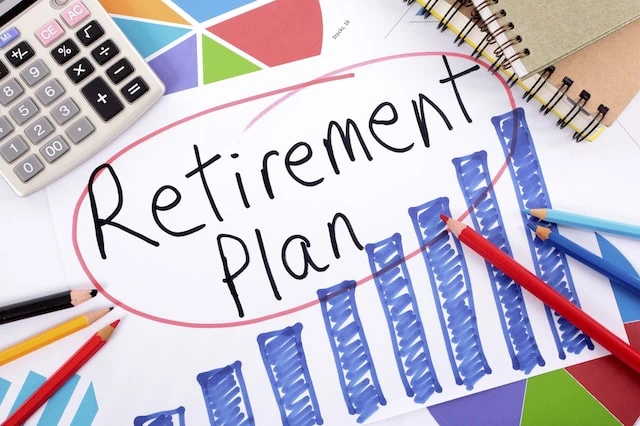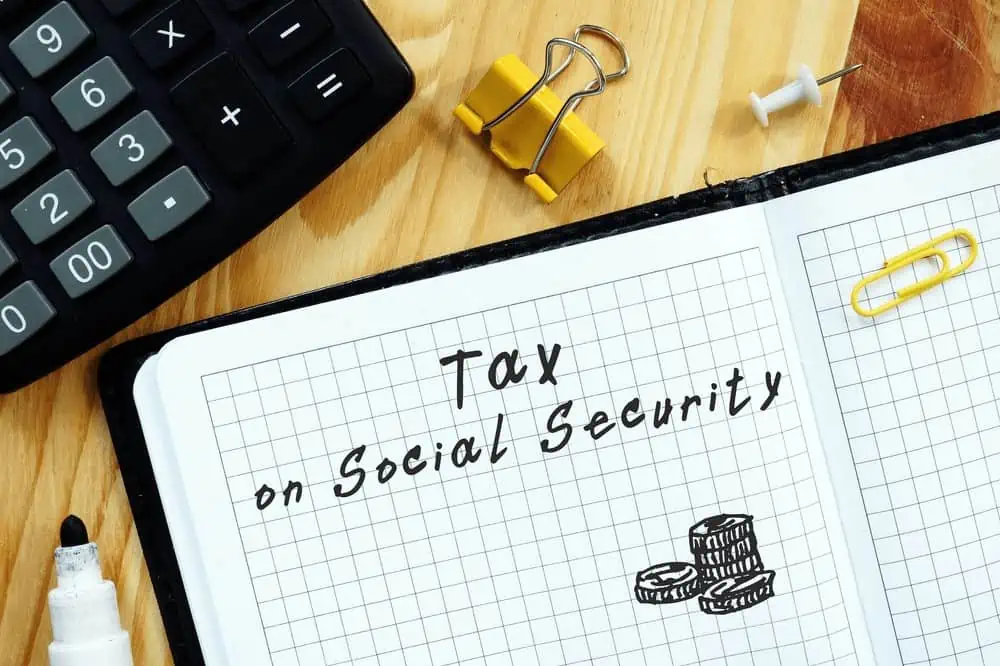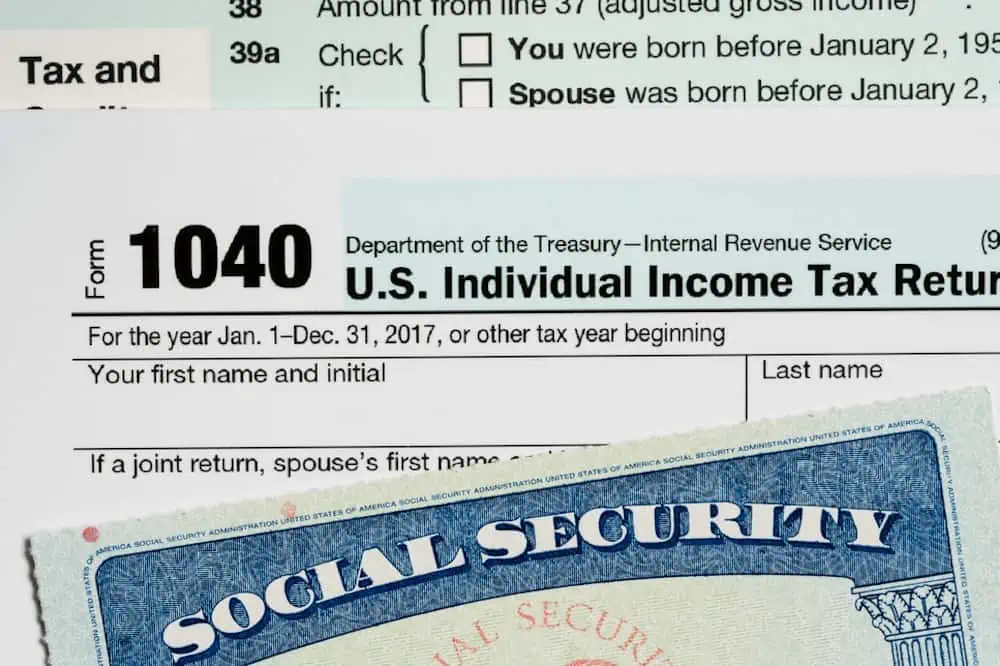Have you ever planned for a wedding, a college graduation party, even just a small gathering? A go-with-the-flow attitude typically ends with a poor result, but while careful planning gets it done right, it can be pretty stressful.
Now take that dynamic and turn the dial up to 11. That’s retirement planning.
A retirement plan has to get you not through a single day of frivolity, but through years (and even decades) of your life. It’s a high-stakes affair, but it’s achievable and oh-so rewarding—if you give it time, put in some effort, and dodge a few common tripwires.
Today, I’m going to help you with that latter obstacle. Read on as I run down some of the most common retirement planning mistakes. Knowing where these potholes sit will help you avoid them now and in the future. The goal here is to make you feel more confident in the plan you eventually craft … and flexible enough to make any necessary adjustments.
Featured Financial Products
Table of Contents
Common Retirement Planning Mistakes

In a 2023 Ipsos survey, a little more than half of people (51%) who aren’t retired and are under age 55 have regrets about their retirement planning, while 41% of people who aren’t retired and are over age 55 feel the same. And 1 in 5 believe they’ll never retire.
You don’t want to be a part of any of those groups.
Below, I’ll outline a group of pretty common retirement mistakes that you can (and should) evade. While everyone’s retirement plan is unique to their own situation, these are errors any person could commit if they’re not mindful as they develop their retirement plan.
1. Improperly Planning for When to Take Social Security

When you take Social Security has much to do with the level of benefits you’ll receive.
The estimated average Social Security retirement benefit as of January 2024 was $1,907, according to the Social Security Administration. But that doesn’t mean that’s the amount you’ll get. The three main factors that can affect the amount of one’s retirement Social Security payments include:
— How many years you worked jobs that pay into Social Security
— Your earnings history
— The age you first start claiming your benefit
When calculating your benefit, the SSA considers your 35 highest-earning years (adjusted for inflation). If you worked fewer than 35 years in jobs where you pay Social Security taxes, each year below that threshold will be considered a zero in calculating the average. For this reason, it’s beneficial to work for at least 35 years—in some cases, it even makes sense to delay Social Security if doing so would significantly benefit your earnings history.
Anyone who takes Social Security before their full retirement age gets a permanently reduced amount. Specifically, your benefits will be reduced by 5/9ths of 1% for each month before normal retirement age, up to 36 months. If you retire even earlier than 36 months before full retirement age, the benefit reduction changes after the first 36 months, to 5/12ths of 1% for each month, up to the maximum early retirement amount of 60 months.
However, if you wait to retire sometime after full retirement age, you actually receive delayed retirement credits, calculated at different rates depending on when you were born, though the additional benefits stop at age 70. For those born in 1943 or later, your monthly rate of increase is 2/3rds of 1%, good for an 8% rate of increase across a full 12 months. (But you still must be insured under Social Security at your full retirement age.)
So, waiting until age 70 could meaningfully boost your Social Security benefits. That said, in some situations (such as a short life expectancy or a glut of personal savings), it makes sense for a person to start collecting at their full retirement age or even earlier.
Related: Best Fidelity Retirement Funds for a 401(k) Plan
2. Being Too Risk Averse

As a person nears retirement, the prevailing wisdom is to make one’s retirement portfolio more conservative. An aggressive portfolio that aims to maximize capital appreciation isn’t an ideal fit for someone who’s in retirement and needs to start withdrawing from their nest egg—and thus can’t afford to risk significant losses in their savings.
However, some people take this advice too far and become too risk averse as they approach and enter retirement.
It’s possible that your retirement savings will need to last 10, 15, 20 years, maybe even longer in retirement. Which means you’ll still need some growth to keep your nest egg from expiring early. A portfolio too invested in bonds, for instance, will be relatively safe and produce some income, but it might not produce enough growth to offset your withdrawals, causing your nest egg to run dry too early. Injecting some level of stock exposure is one way to prevent this.
What’s the proper balance? Like with many things investing, your ideal allocation will depend on your financial situation, age, goals, and risk tolerance.
Related: 5 Best Vanguard Retirement Funds [Start Saving in 2024]
3. Assuming a Very High Market Return in Your Withdrawal Strategy

Data from Nobel Prize-winning economist Robert Shiller suggests that since 1971, the S&P 500 has delivered an annualized return of 7.58%; that number increases to 10.51% if you reinvest dividends.
That’s as good a guideline as any to use in your estimations, but remember two important things:
1. Past performance doesn’t guarantee future returns.
2. That’s an average—actual stock market fluctuates from one year to the next.
If you assume an overly optimistic market return in your calculations, you could end up more than just disappointed—you could end up broke.
You also have to worry about the “sequence of returns” effect. Remember: Every year, you’ll be withdrawing from your retirement account, so that will act as a performance drag through thick and thin. If you assume an average 10% return, but you also assume you’ll get those 10% returns each and every year, that model will churn out pretty smooth withdrawal scenarios.
But they might be unrealistic. What happens if your portfolio does see an average 10% return across 20 years of retirement, but in your first few years of retirement, the market tanks? Your withdrawals will compound the losses, putting your retirement at a much lower starting point once the gains take hold, and your withdrawal scenarios could be torn to shreds—putting you at risk of outliving your savings.
(Want to see what we mean? Check out our look at retirement withdrawal strategies, which assume these kinds of “lumpy” returns.)
Related: Don’t Believe These 17 Social Security Myths
Featured Financial Products
4. Relying Too Much on Portfolio Withdrawals

Two-thirds of Americans who aren’t retired say they plan to rely on retirement accounts, such as 401(k)s or IRAs, to fund their retirement, according to the aforementioned Ipsos survey.
A retirement account (or retirement plan) is generally any tax-advantaged investment account that can help you grow your funds for use after you stop working. But relying on these accounts completely poses a depletion risk, particularly if the market isn’t performing well. Once the money is completely gone, it isn’t easily replenished.
For this reason, you’ll want to consider whether you can accumulate additional income streams as part of your retirement plan. Fortunately, most people reading this will have some amount of Social Security benefits to lean on. In addition, you might have annuities, a pension, part-time work, rental income, or other income-generating assets.
If you don’t have much in the way of additional income, you might need to delay your retirement or accept a lower baseline withdrawal to ensure your funds don’t run out early.
Related: Is Your Retirement on Track? Here Are the Average 401(k) Balances By Age
5. Not Properly Budgeting in Retirement

While it’s impossible to predict every last expense in your post-career life, you want to put in the effort to make sure your retirement budget is as accurate and realistic as possible.
We have a fuller look at budgeting in retirement, but in short:
Start by considering your various retirement expenses. Some of your most costly retirement costs may be housing, food, travel, and health-related expenses. You’ll also need to pay for utilities, transportation, entertainment, and more.
The numbers allotted for each category will vary by person, so you need to sit down and make the necessary calculations or have a financial advisor help you do so. Forgetting about or underestimating expenses can put you at risk of depleting your retirement savings too quickly.
Next, figure out your retirement income streams. In Schroders’ 2024 U.S. Retirement Survey, 88% of non-retired Americans said they are at least slightly concerned about not knowing how to best generate retirement income. Per the survey, besides Social Security, the top income sources non-retired Americans anticipate drawing upon include:
— Cash savings (60%)
— Workplace 401k, 403b, or 457 plan (48%)
— Spouse’s workplace 401k, 403b, or 457 plan (37%)
— Investment income (36%)
— Spouse’s pension plan (27%)
And again, on the theme of moderation: While it’s best to err on the side of caution when it comes to retirement planning, you also don’t want to vastly underestimate how much income you’ll be receiving. Doing so could result in you withdrawing far less than you actually need, leading to undue stress and an unnecessarily spartan retirement.
Related: How Much Should I Save Each Month?
6. Choosing the Wrong Retirement Drawdown Strategy

Your retirement drawdown strategy (aka withdrawal strategy or decumulation strategy) determines how much you’ll regularly take from your retirement accounts, as well as how (and how much) that number will or will not change over the years.
One of the most touted examples is the 4% rule.
The 4% rule suggests people withdraw 4% from their accounts during their first year of retirement. Each of the following years, you adjust that amount for inflation. It’s a good rule of thumb that has been prescribed for decades.
But one of the most common retirement mistakes is assuming that you should stick to a strategy and never budge. Not so! Indeed, William Bengen, who created the 4% rule in 1994, revisited it in recent years and determined that 4.5% might be a more advisable number given high inflation of late.
And importantly: Even if the general rule might work for you, your situation might require a higher or lower starting percentage.
In addition to withdrawal strategies that determine how much you take, there are other tactics that focus on budget optimization and tax optimization.
For instance, some retirees focus on an account sequencing strategy that minimizes taxes. This method has people first draw from taxable accounts, then tax-deferred ones, then finally tax-free accounts.
There’s also the bucket method, which is meant to protect the money you need soon while letting other money (that you won’t need for a while) increase in value. Other retirees use the bucket method, where money is invested differently depending on when that money will need to be withdrawn. The goal of this method is to protect the money you need soon while letting other investments increase in value.
Related: Should Retirees Move? 10 Considerations
7. Not Properly Accounting for Inflation

Forget about inflation at your own peril.
Inflation decreases the spending power of your dollar over time. Consider the effect it has had in just a few short years: If you bought an item for $1,000 in 2019, thanks to inflation, that same item would cost $1,191.84.
America’s inflation rate tends to vary significantly by year, and the past few years have been particularly wild:
— 2019: 2.3%
— 2020: 1.4%
— 2021: 7.0%
— 2022: 6.5%
— 2023: 3.4%
In other words: Predictions for future rates might not be accurate. So as you account for inflation, it’s best to err a bit on the side of caution and assume a slightly higher-than-predicted average rate.
Related: 9 Financial Mistakes That Can Quickly Drain Your Retirement Savings
Featured Financial Products
8. Retiring Too Early

It’s easy to see the appeal of an early retirement. Some people dislike their jobs. Others want to spend more time traveling or bonding with family while they are still mentally and physically fit. For many, it’s a combination of factors.
But retiring too young has its drawbacks.
To start, as I mentioned above, people who take Social Security benefits before they reach full retirement age have a permanent benefit reduction.
Compounding the problem? You’ll also have less time to build a hearty emergency fund and retirement nest egg.
Also, it’s possible that you’ll underestimate your own potential longevity. Rather than look at average life expectancies, which include people who die in childhood and early adulthood, you might instead consider the Period Life Table. This table, created by actuaries from the Social Security Administration, shows one’s expected remaining years of life at different ages. For instance, a 64-year-old female is estimated to live about 20.5 more years. If you’re that age and your retirement savings are unlikely to last that long, an early retirement might not be in the cards.
Retirement isn’t a purely financial decision, either—it’s a mental and emotional one. In a 2022 T. Rowe Price survey, 45% of respondents who were working in retirement said they are doing so for the social and emotional benefits. That’s only slightly less than people who said they were doing it for financial reasons (48%). Work gives some people a sense of purpose that they struggle to find elsewhere in retirement.
Related: Retired But Too Young for Medicare? Health Insurance for Early Retirees
9. Retiring Too Late

On the flip side, you won’t want to let your fears delay your retirement indefinitely.
You might have a low life expectancy or health issues that will keep you from enjoying retirement later in life.
Or you might have more money stashed away in a retirement account than others could even dream of, but still fear it isn’t enough. But as the saying goes, “You can’t take it with you.” If you wait too long to retire, you might not benefit from the fruits of your labor.
Plus, a retirement plan where you expect to work into very old age might be unrealistic. Your body might refuse to continue doing physical work. Or you might be unwilling to keep up with current technology or workflows.
And even if you are 100% mentally and physically capable of doing a job, you might fall victim to ageism in the workforce. In a 2023 Society for Human Resource Management survey of U.S. workers, nearly one-third of respondents said they felt they were treated unfairly because of their age at some point during their career. Of those workers, nearly three-fourths (72%) said it made them feel like quitting.
Related: Should I Pay Off My Mortgage Before I Retire?
10. Not Personalizing a Retirement Plan to Your Situation

It’s easy to find retirement planning advice online from any number of financial gurus and pundits. But their net worth, financial goals, and risk tolerance are almost assuredly different from your own.
Your retirement plan has to be customized for you.
Many people work with a financial advisor to help them avoid common retirement planning mistakes. According to the 2023 Herbers & Company Service Market Growth Study, retirement planning is the second most-wanted service that consumers with more than $250,000 in household assets want from a financial advisor. (Only tax planning was more in demand.)
Consider having a financial professional help you develop a plan that is tailored to your resources and needs.
Related: The Best Retirement Plans for 2024 + 2025 [Workplace + Individual]
11. Not Planning Early Enough

In school, if we had weeks to complete an assignment, we could often get away with pulling a last-minute all-nighter to get it done.
But you can’t solve your retirement with an 11th-hour cram session.
The earlier you plan for retirement, the better. A retirement plan you create in your 20s or 30s will likely change, but that’s fine! Having a plan that you tweak and refine over time is far better than not having a plan at all.
As soon as you have a sense of how much money you might need and how you’ll save up that much, you have a guidepost to help you determine whether you’re “on track.” You might need to increase how much you’re saving, or find that you’re saving too aggressively but ignoring the present. Either way, you’re correcting problems before it’s too late.
Again, there are few bigger retirement mistakes than not having a plan in place.
Related: Do I Need a Financial Advisor? 7 Questions to Ask Yourself
Featured Financial Products
Related: 10 Ways You Risk Losing Your Social Security Benefits

Social Security is designed to provide some financial stability to certain groups of Americans. But while it’s virtually guaranteed to those groups, it can, in certain circumstances, be taken away. We cover the numerous ways in which you can risk losing your Social Security benefits.
Related: 11 Ways To Avoid Paying Taxes on Your Social Security

If you’re looking to minimize the tax bite taken out of your Social Security benefits in retirement, you’ve got several available actions to reduce how much you pay each year. We outline several ways to avoid paying taxes on your Social Security benefits.
Related: How Are Social Security Benefits Taxed?

In many cases, Social Security benefits are subject to federal taxation. To learn how your Social Security benefits are taxed, we’ve got an entire guide to walk you through the calculation.
Related: 10 States That Tax Social Security Benefits

While most states don’t subject Social Security benefits to taxation, at least 10 states do tax Social Security. To see if you live in one of them, or you’re considering a relocation for retirement and taxation of your Social Security is a sticking point, we’ve got you covered with all of the details.
Please Don’t Forget to Like, Follow and Comment

Did you find this article helpful? We’d love to hear your thoughts! Leave a comment with the box on the left-hand side of the screen and share your thoughts.
Also, do you want to stay up-to-date on our latest content?
1. Follow us by clicking the [+ Follow] button above,
2. Subscribe to The Weekend Tea, our weekly newsletter to read more about investing, spending, taxes, and more, and
3. Give the article a Thumbs Up on the top-left side of the screen.
4. And lastly, if you think this information would benefit your friends and family, don’t hesitate to share it with them!





